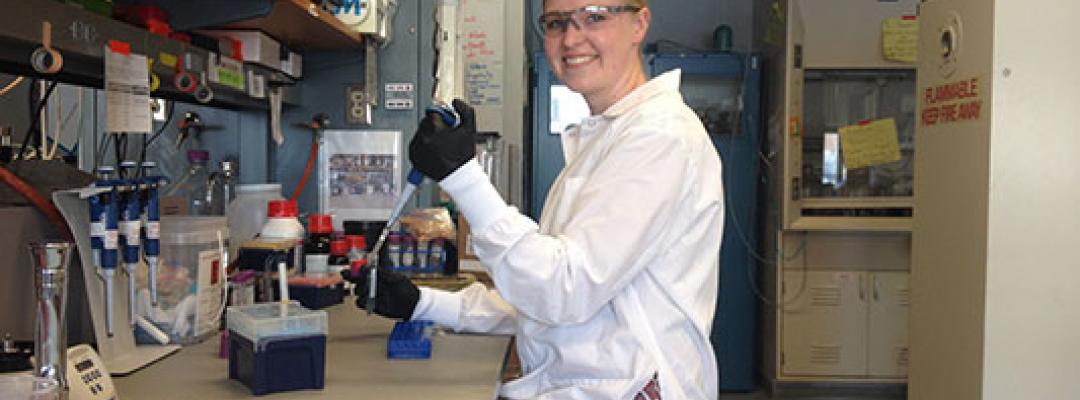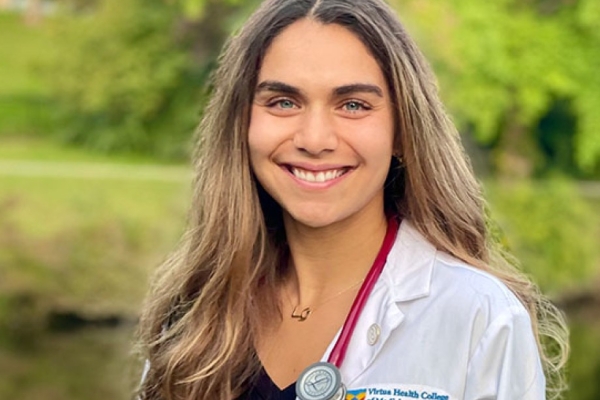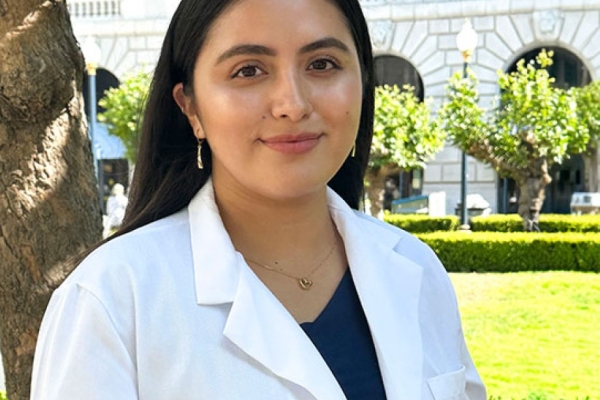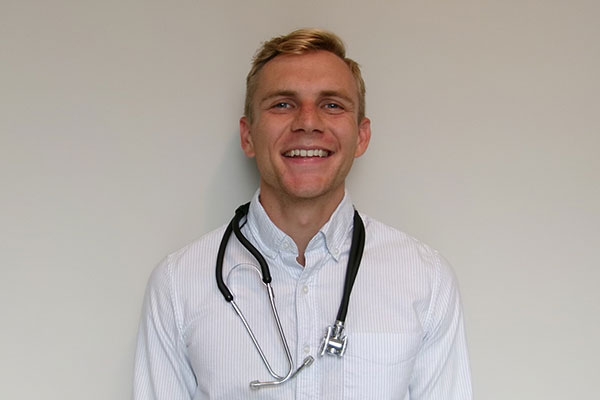The field of biological sciences is constantly evolving, what with new discoveries, research and novel techniques inundating a scientist on a daily basis. Staying on top of this plethora of information is part-and-parcel for those in the medical profession to create a healthier tomorrow.
Such is the case for Cornell University alumna Kristen Fortnam—who graduated with a bachelor's degree in biological sciences with a focus on microbiology.
Currently a microbiology research technician at MIT (where she investigates genetic engineering of microbes to produce biofuels and valuable chemicals from sustainable substrates), Fortnam has her eye on graduate study. Despite this previous professional experience, she had identified gaps in her medical knowledge to be a competitive applicant. After moving to San Francisco in search of laboratory research experience, Fortnam also enrolled in online science courses to "keep me up-to-date in the field, challenge me academically and fill any potential holes in my undergraduate studies," she explains. "UC Berkeley Extension offered many options, both online and in the classroom, which provided the flexibility I needed to attend classes and maintain my hectic work schedule."
Starting her Ph.D. work this July at Tufts University in the Molecular Microbiology program—researching host-microbe interactions in the context of human disease—Fortnam looks back on her experience with Extension.
Instructors were very responsive to questions and provided helpful feedback on all assignments.
On taking online classes:
I took Immunology and Current Topics in the Biosciences, which were both very informative, useful and enjoyable. They were structured much like you would expect in a classroom-based course with new material and homework for each lesson, along with quizzes and final exams or projects. The courses were user-friendly and included a variety of learning materials (textbooks, teacher commentary, research articles, presentations and other electronic resources). Instructors were very responsive to questions and provided helpful feedback on all assignments. It was convenient to learn the material and submit assignments from home—or the coffee shop, library, airport terminal or wherever life dictated at the time.
On fellow online classmates:
They were very diverse in terms of age, geographic location, professional and academic experience, and goals, which brought many interesting perspectives and opinions to the discussion topics. Current Topics in the Biosciences, especially, included many interactive assignments so I developed a good connection with the instructor and even saw the personalities (and heard the recorded voices!) of other students through discussion threads and journal article presentations. In some ways, the online course provided even more opportunities for interaction than other classroom courses I have taken.
In some ways, the online course provided even more opportunities for interaction than other classroom courses I have taken.
On advice for future online students:
It is an excellent opportunity to take a class with a little more flexibility, but that also means you must motivate yourself to spend that time and do the work because you aren't being forced to sit in a classroom. This is even more critical for the self-paced courses. Use all of your resources and don't hesitate to ask the instructor questions. The courses are designed so that you can participate in the learning along with other students, so take advantage of those discussions and have a little fun with it!
On future-casting her career:
I'll have a doctorate in molecular microbiology, and will continue my research career in either the academic or industrial community. I want to help answer difficult questions about pathogenesis that will lead to better diagnosis, treatment and prevention of infectious disease worldwide.



